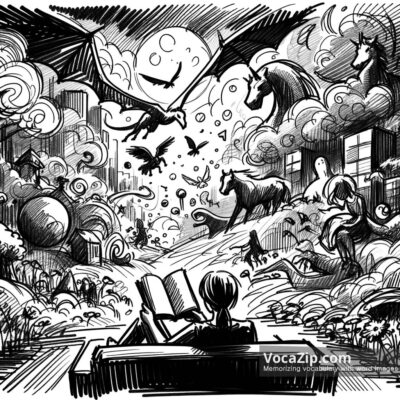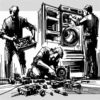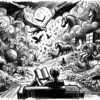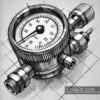fiction meaning
fiction :
imaginary stories, not real
noun
▪ She loves reading fiction.
▪ She loves reading made-up stories.
▪ Fiction can be fun and creative.
▪ Made-up stories can be fun and creative.
paraphrasing
▪ fantasy – imaginary
▪ novel – book story
▪ fable – tale
▪ myth – legend

Pronunciation
fiction [ˈfɪk.ʃən]
The stress is on 'fic' and sounds like 'fik-shun'.
Common phrases and grammar about fiction
fiction - Common meaning
noun
imaginary stories, not real
Part of Speech Changes for "fiction"
▪ fictional (adjective) – imaginary or made-up
▪ fictitious (adjective) – not real, made-up
Common Expressions with "fiction"
▪ science fiction – stories about future or space
▪ work of fiction – a made-up story
▪ historical fiction – stories set in the past
▪ piece of fiction – a short story or tale
Important examples of fiction in TOEIC
Vocabulary examples from the TOEIC test
In TOEIC vocabulary questions, fiction is often used to describe books or stories that are not real.
Example of a confusing word: faction (a group within a larger group)
Grammar examples from the TOEIC test
Fiction is usually used as a noun in TOEIC questions, often in contrast with non-fiction.
fiction
Idioms and fixed expressions in TOEIC
science fiction
'stories about future or space', used in genres of books or movies.
stranger than fiction
means 'something unbelievable but true'.
Differences between similar words and fiction
fiction
,
fantasy
differences
Fiction refers to all made-up stories, while fantasy often includes magical or supernatural elements.
fiction
,
novel
differences
Fiction is a broad category of made-up stories, while a novel is a long written story.
Words with the same origin as fiction
The origin of fiction
fiction comes from the Latin 'fictio', meaning 'the act of making or shaping'.
Word structure
It has the root fict (to shape or make), and the suffix ion (noun), meaning 'the act of making'.
Words with the same origin
The root of fiction is fict (to shape or make). Words with the same root include fictitious (imaginary), and fabricate (to make up).






